It’s something we’ve always been asked to do and have done so ever since we’ve been kids: we always close our eyes while going to bed. But why is this the case?
So, why must we close our eyes to sleep? We close our eyes when we sleep for three reasons:
- To stop visual stimuli in the form of light from reaching your brain and keeping you awake
- To protect and keep your eyes hydrated.
- To allow the delicate muscles that control your eyelids to get some rest.
The human body is a complicated machine, and while it’s easy to be happy with the simple answers above, we think it makes sense to dive a little deeper. We’ll also discuss why it might be a problem if you don’t seem to shut your eyes closed later in the post.
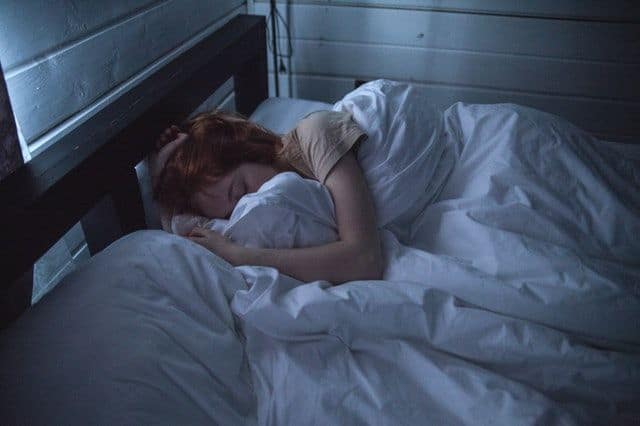
How Does Light Affect Your Sleep?
A ‘stimulus’ is the name given to any external phenomenon that alerts your body as to what’s going on around you. Of the five senses that humans have by birth, vision is often hailed as having the most impact on your brain.
Your eyes are always taking in information from your environment, even while you’re not paying attention to anything specific. This information is processed by different parts of your brain to continuously control your body’s many functions.
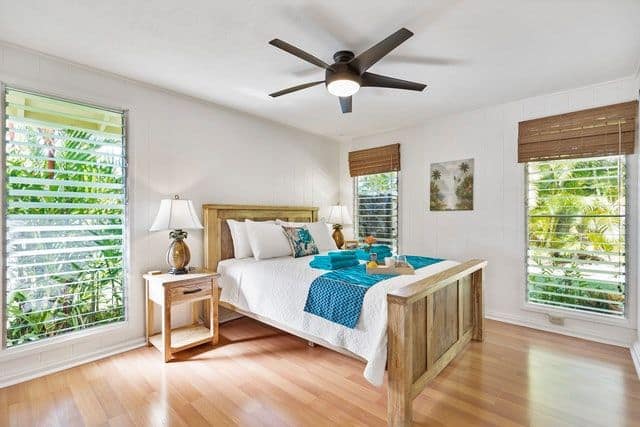
One of these functions is to regulate your body’s internal clock called the circadian rhythm. Your body’s internal clock determines when you feel sleepy and when you feel awake. The circadian rhythm is very sensitive to the visual stimuli in your surroundings (being more specific, how bright your surroundings are).
When it’s bright out, your brain tells your body that it’s time to go out and work (or hunt, giving a nod to evolution). And similarly, when it’s dark or dim, your body automatically powers down and gets ready to rest. This is also the reason why blue light from phones and digital devices like a laptop before bedtime is detrimental to your sleep.
Closing your eyes is a way for your body to steer clear of such stimuli and have a restful night’s sleep.
Why Do Your Eyes Need to Be Hydrated?
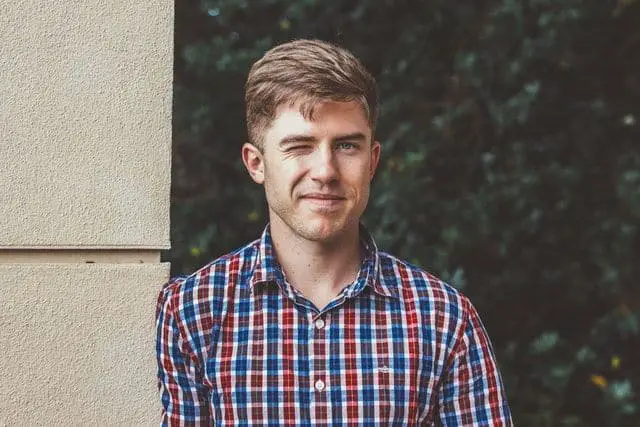
Human eyes are sensitive organs that work using some very complicated mechanisms. Your eyes are a very delicate and foreign organ, and anything that makes its way into your eyes can have an agonizing effect. Your eyes also require a very thin layer of lubrication to function properly. This is the hydration we’re talking about here.
Every time you blink, your eye-balls get a very healthy dose of this hydration. It keeps your eyes moist and free of foreign particles & pathogens. If you don’t close your eyes during sleep and instead keep them open, that would mean nothing is stopping your eyes from getting dry. There is also the possibility of pathogens, dust, and other unwanted particles getting into your eyes while you’re asleep.
Hence, to keep your eyes lubricated and free of unwanted gunk getting into your eyes, your body evolved to close your eyes during sleep.
The Role of the Eyelid Muscles
Holding your eyes open when you’re awake requires the use of muscles controlling your eyelids. These are thin, delicate muscles that never seem to tire of retracting so that you get to see the world in all its glory. But given that most of your muscles are in a relaxed state during sleep, it means that these tiny retractor muscles also get their due share of rest during the night.
This article is owned by Sleeping Report and was first published on March 23, 2020
Taking Care of Your Eyes for Better Sleep
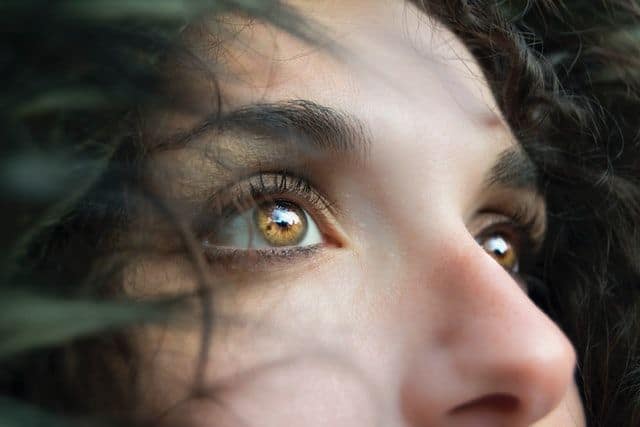
It’s easy to see how big a role your eyes play when it comes to giving you a good night’s sleep. Here’s how you can treat and take care of your eyes so that they’re healthy and continue to serve their function properly. We’ll summarize them at the end of this section as well, so it’s easier for you to remember them.
As discussed, your brain adjusts your sleep cycle depending on how bright your surroundings are. Unfortunately, this does not always coincide with when you want to sleep or how tired you are.
To get a good night’s sleep and to not disturb your circadian rhythm, avoid bright lights a couple of hours before your sleep. Not using your mobile phone or other gadgets that emit light before you go to bed is also an effective step toward telling your body you are done for the day.
During the later parts of the day, you can try using a blue-light filter app on your phone and other devices you use to keep the amount of bright-blue light as low as possible. Blue light is thought to be the worst offender in this regard.
While you’re awake and working, try to keep your eyes moist by taking the time out to blink a couple of times and give your eyes some rest. This is important as most people who work on a computer frequently forget to blink as much when they’re looking at the screen.
Keep your body hydrated as well by drinking plenty of water. If your eyes tend to be dry or blinking does not seem to help, consider using an over the counter eye drop solution.
So to summarize:
- Avoid bright lights, especially blue lights a couple of hours before sleep to get your body to “mellow” down
- Consider using a blue light filter on your phone, laptop, and tablet
- Don’t forget to take some time out to blink and give your eyes some rest
- Use an eye drop solution in case you observe that blinking doesn’t help
Sleeping With Your Eyes Open
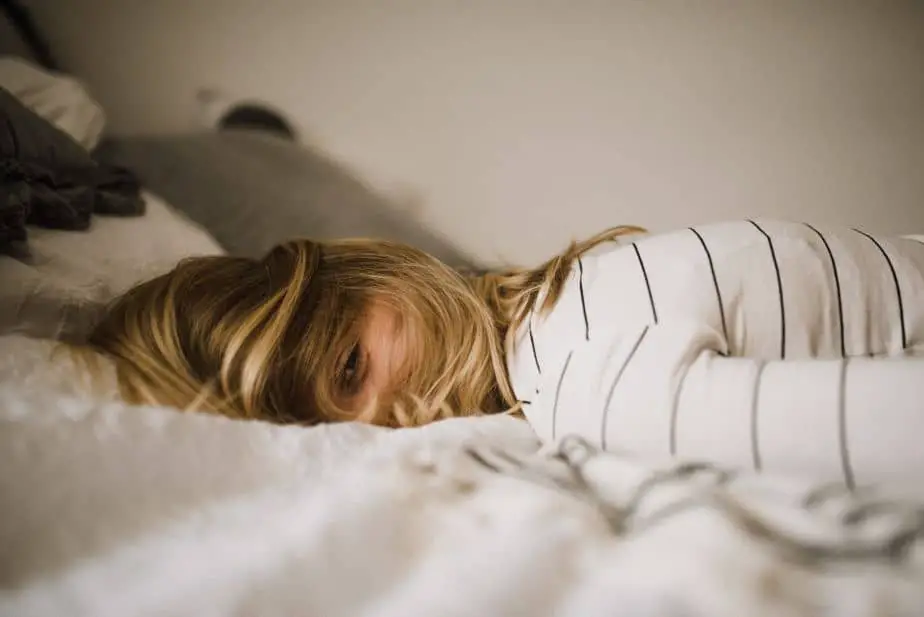
Studies suggest that around 20% of us sleep with our eyes partially or fully open. Though it can seem to be a trivial issue, it’s one that can have very ill-effects on your vision. Sleeping like this can also be indicative of an underlying medical condition that would require immediate medical attention.
Such causes can range from recent surgery on facial muscles to infections such as Lymes. For most people, though, it might not have any apparent causes with the phenomenon running in the family for some.
However, some of the things that can cause such a condition are:
This article is owned by Sleeping Report and was first published on March 23, 2020
- Recent surgery done on facial muscles
- Trauma or an injury
- Stroke
- Tumour
- Neuromuscular disease
- Infections such as Lymes, mumps, polio, leprosy, diphtheria, etc.
- Abnormally large upper or lower eyelids
You can realize that you’re not closing your eyelids fully by noticing symptoms such as extremely dry eyes on waking up, redness, blurred vision, etc. It is strongly suggested that you visit your doctor and address the issue, should you feel any of these symptoms no matter how minor.
Conclusion
Human beings (and many animals) tend to close their eyes when they sleep. The process evolved because of how our eyes are designed and function in normal day to day life.
The eyes being shut prevents visual stimuli in the form of light from stressing our brain when it needs to rest. The eyelids also prevent foreign matter and pathogens from entering our eyes when it is unguarded, while we sleep.
The eyes and the visual inputs our brain gathers from them play a critical role in determining our sleep cycle. Things such as bright lights and dry eyes prevent restful sleep and might harm our ability to get it in the long term as well.
Avoiding certain activities before bed and including some simple eye care practices can drastically improve your sleep quality and general wellbeing.
SleepingReport.com copyright article was updated on ..
Surgery or underlying medical conditions such as infections sometimes lead to people sleeping with their eyes open. While it is possible that the issue might disappear all of a sudden or might not lead to any serious impact on your eyes or sleep, it is suggested that you visit your doctor should you suspect that you sleep with your eyes open.

